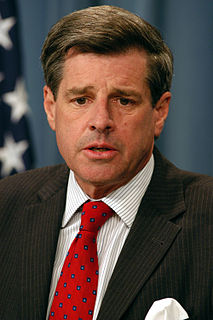A Quote by John Rawls
The good of political life is the good of free and equal citizens recognizing the duty of civility to one another and supporting the institutions of a constitutional regime.
Related Quotes
Now the good of political life is a great political good. It is not a secular good specified by a comprehensive doctrine like those of Kant or Mill. You could characterize this political good as the good of free and equal citizens recognizing the duty of civility to one another: the duty to give citizens public reasons for one's political actions.
The greater the importance to safeguarding the community from incitements to the overthrow of our institutions by force and violence, the more imperative is the need to preserve the constitutional rights of free speech, free press and free assembly in order to maintain the opportunity for free political discussion.
Civility means a great deal more than just being nice to one another. It is complex and encompasses learning how to connect successfully and live well with others, developing thoughtfulness, and fostering effective self-expression and communication. Civility includes courtesy, politeness, mutual respect, fairness, good manners, as well as a matter of good health. Taking an active interest in the well-being of our community and concern for the health of our society is also involved in civility.
A crucial turning point in that earlier history occurred when men and women of good will turned aside from the task of shoring up the Roman imperium and ceased to identify the continuation of civility and moral community with the maintenance of that imperium. What they set themselves out to achieve instead - often not recognizing fully what they were doing - was the construction of new forms of community within which the moral life could be sustained so that both morality and civility might survive the coming age of barbarism and darkness.
For what is meant by saying that a government ought to educate the people? Why should they be educated? What is the education for? Clearly, to fit the people for social life - to make them good citizens. And who is to say what are good citizens? The government: there is no other judge. And who is to say how these good citizens may be made? The government: there is no other judge. Hence the proposition is convertible into this - a government ought to mold children into good citizens, using its own discretion in settling what a good citizen is and how the child may be molded into one.
Time indeed changes manners and notions, and so far we must expect institutions to bend to them. But time produces also corruption of principles, and against this it is the duty of good citizens to be ever on the watch, and if the gangrene is to prevail at last, let the day be kept off as long as possible.
The only standard we have for judging all of our social, economic, and political institutions and arrangements as just or unjust, as good or bad, as better or worse, derives from our conception of the good life for man on earth, and from our conviction that, given certain external conditions, it is possible for men to make good lives for themselves by their own efforts.
In a regime of Free Trade and free economic intercourse it would be of little consequence that iron lay on one side of a political frontier, and labour, coal, and blast furnaces on the other. But as it is, men have devised ways to impoverish themselves and one another; and prefer collective animosities to individual happiness.
The United States of America was originally an experiment. But it was an experiment in recognizing God-given individual liberty and creating a government in which we no one is deemed better than another. And in which all of us are equal. Not equal in abilities, but equal in intrinsic worth and value.


































